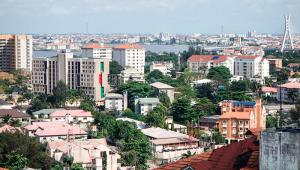Nigeria and Kenya, also among Africa’s most important economies, are likely to suffer as a result of the UK’s decision to leave the European Union, the company said in a report analysing the impact of the vote on the continent’s most significant markets.
“The South African economy is now more likely to fall back into recession and extreme currency volatility indicates that a downgrade of its credit rating to non-investment grade in December is now almost inevitable,” the report said.
The country’s exposure to the global economy and strong ties to the UK meant the South African rand crashed by 8% in the wake of the results from the UK’s referendum last week - its biggest drop since the financial crisis in 2008 – before recovering by 4.4%.
While the UK’s exit and any further euroscepticism it sparks are likely to have a small impact on South African trade and subsequently growth, EXX Africa said that with the country’s growth already in slump, a recession is increasingly likely.
The country’s GDP contracted by 1.2% in the first quarter of 2016 due to shrinking farming and mining outputs.
But the impact on the rand would be more “significant” and have “longer term implications”, EXX Africa continued, leading to weaker growth, higher inflation and interest rates and extensive capital flight.
In a report also published earlier this week, the UK’s Overseas Development Institute said that dual currency systems could be an appropriate means for emerging and developing economies to absorb multiple macroeconomic shocks, including those triggered by Brexit.
“With a prolonged period of aversion ahead, sharp currency moves in developing and emerging economies could continue,” it warned.
While many tactics currently used to stabilise currencies, such as devaluation or pegging the value of a currency to another, are “problematic”, the ODI stressed that dual currency systems could be the best option to safeguard growth.
The ODI also noted that because of the heightened geopolitical uncertainty following the Brexit vote, investors many steer their investments away from developing countries considered risky.
EXX Africa intelligence agreed. Nigeria for example may struggle to collect the $5bn it plans to make from foreign investors as part of a eurobond sale, due this year. It was hoped the bond would help finance the country’s biggest-ever budget amid a painful crash in oil revenues.
“The implementation of the fuel sector liberalisation, including the termination of a burdensome state subsidy scheme” are also likely to face “implementation issues”, it added.
Kenya too is likely to see capital flight as investors seek safe havens, EXX Africa Intelligence said, but the nation may also see some benefits of the UK’s messy divorce.
“It is likely the EU would prioritise trade negotiations with Kenya given the two countries’ long-standing bilateral relations,” the report said. “Such negotiations could even benefit Kenya and other East African Community countries.”












